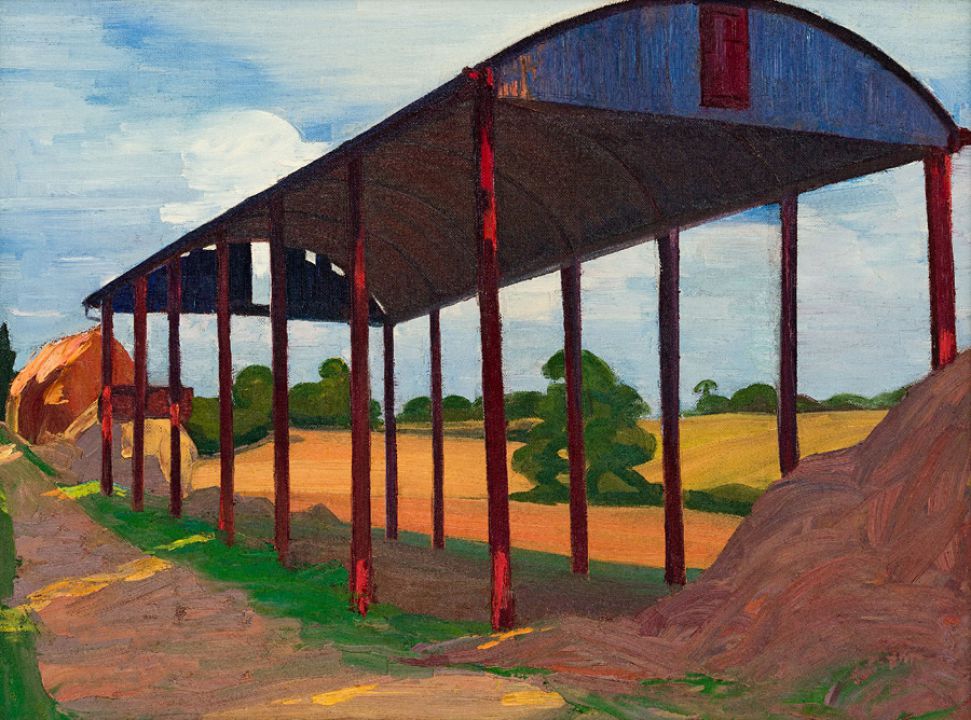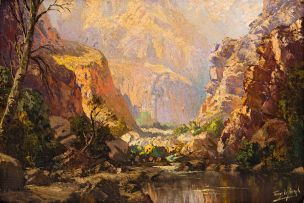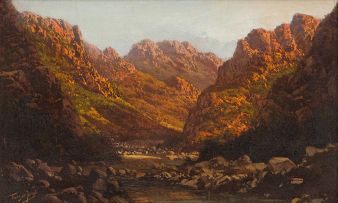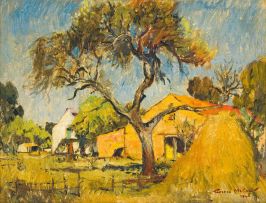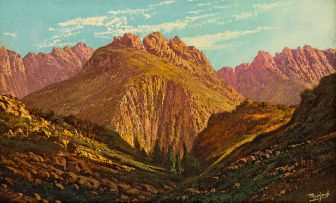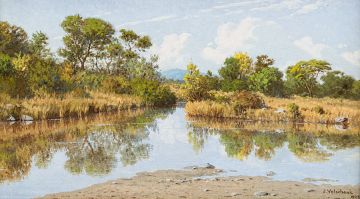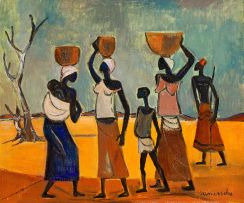Haycover
Bertha Everard
About this Item
inscribed with the artist's name and title on a label and authenticated by Leonora Everard-Haden, the artist's granddaughter, on the reverse
Notes
Before their Parisian studies in 1925 and 1926, Bertha Everard and her daughters Ruth and Rosamund settled in Hertfordshire late in September 1922, first in Harpenden, and then later in Kimpton. The paintings she produced in the surrounding countryside showed, to Frieda Harmsen at least, the author of The Women of Bonnefoi: The Story of the Everard Group, 'a definitive change of style'. 1 Not only are these works smaller than previous examples, and invariably without any figural forms, but 'the colours are bright and directly applied, the shapes are simple, the lines crisp, (and) the brush strokes long, sweeping and rhythmic'. 2 Haycover certainly fits this formal description, but in Harmsen's eyes it also suggests 'a surreal character that points to an interest in the work of Paul Nash'. 3 Besides the pictures of Nash who, with the likes of Stanley Spencer, Mark Gertler and Edward Wadsworth, had been part of the exceptional pre-War class at the Slade School, Bertha's 'Hertfordshire landscapes (also) show a resemblance to the work of the Bloomsbury Group of painters - Duncan Grant, Vanessa Bell, Roger Fry - rebellious avant-garde artists who were exhibiting regularly during the years in which the Everard group was in England'. 4
1 Harmsen, Frieda. 1980. The Women of Bonnefoi: The Story of the Everard Group, Pretoria: J.L.van Schaik. Page 95.
2 Ibid.
3 Ibid.
4 Ibid.
